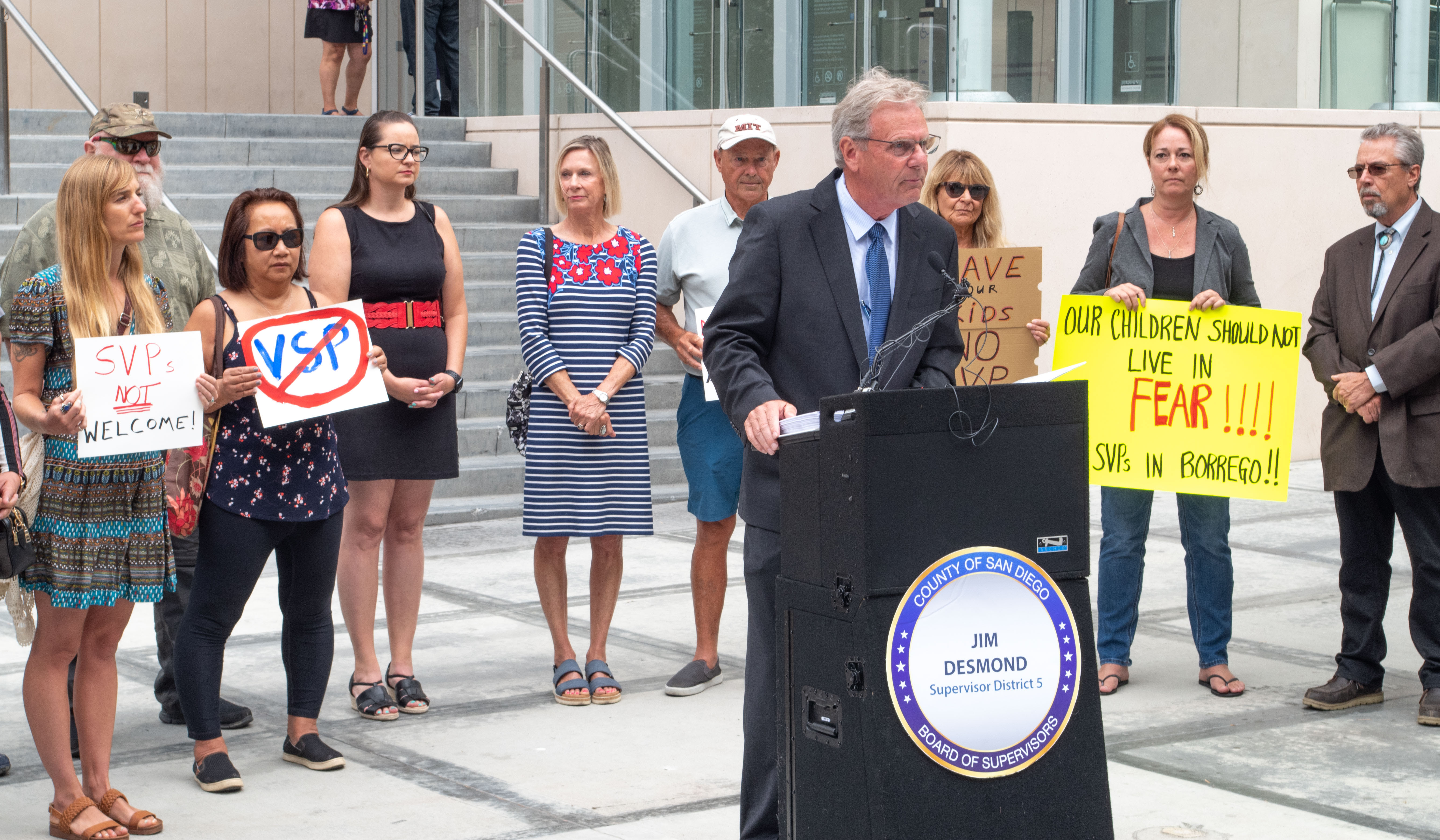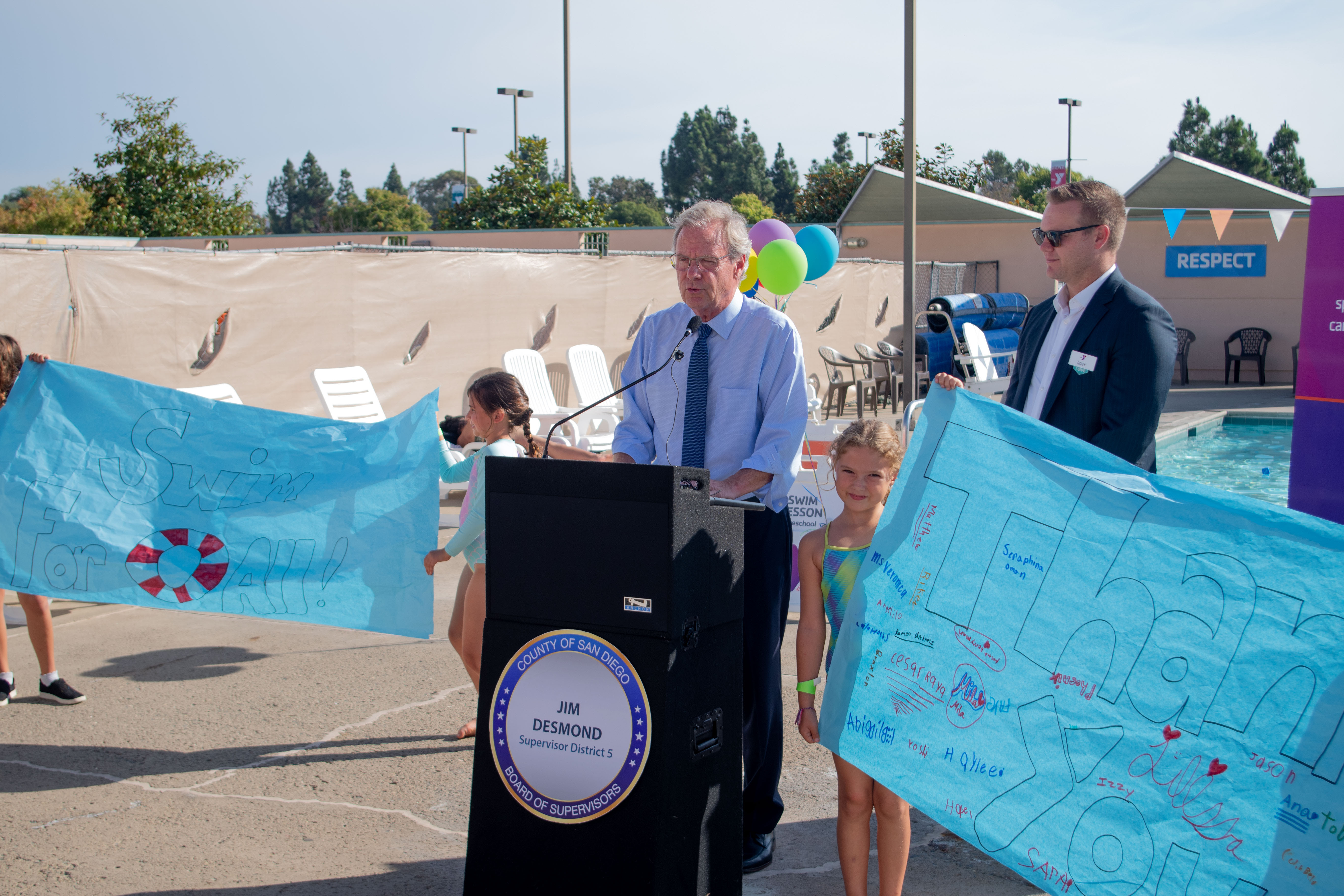Supporting Senate Bill 832
The Board of Supervisors unanimously passed a resolution to support Senate Bill, 832, which would prioritize public safety when placing Sexually Violent Predators.
I want to thank Senator Brian Jones’ for his leadership and authoring SB 832, which would demand transparency from the Department of State Hospitals and require them to consider their properties and state prison properties for placement. SB 832 would also prevent an SVP from being placed within 5 miles of federally recognized “Indian country.” This is especially important for rural and Indian lands that may not have the level of police enforcement necessary to ensure the safety of their communities.

No community should have to live in fear of SVPs. These individuals are the worst of the worst, having been convicted of violent sex crimes and diagnosed with conditions that make them likely to reoffend. Too often, these predators are dumped into unsuspecting communities, causing fear and anxiety among residents.
The recent ruling that Sexually Violent Predator Douglas Badger will be placed in Borrego Springs makes this issue even more pressing. Badger has been diagnosed with schizoaffective disorder and Sexual Sadism Disorder and has been convicted of several offenses, including child molestation and kidnapping. It is disappointing that such a predator will be placed in a disadvantaged community, but hopefully, legislation like SB832 will prevent this from happening in the future.
When considering legislation related to SVPs, we should ask ourselves whether we would want to raise our children next door to someone like Douglas Badger. If the answer is no, we should not force it upon our constituents. We must prioritize public safety and ensure that our communities are protected from these dangerous individuals.
In conclusion, protecting tribal lands from SVPs is crucial to ensuring the safety and well-being of our communities. SB832 provides a much-needed solution to this issue, and we must do all we can to support it. Together, we can create a safer, more secure future for ourselves and our loved ones.
Drowning Prevention
Drowning is a tragic and preventable occurrence that takes the lives of far too many people, especially children. That’s why promoting and implementing drowning prevention programs is essential to ensure everyone can enjoy the water safely. In May 2021, Chairwoman Vargas and I co-docketed the first Drowning Prevention Board Letter. This legislation started a program to prevent drownings by promoting water safety and offering swimming lessons to those who needed them. The results were astounding: over 8,000 participants became water-safe, and 4,385 took in-water swimming lessons.

Because of the program’s success, I would like to see it replicated every year. At this week’s Board of Supervisors meeting, we funded the program for another year and directed our Chief Administrative Officer to seek annual funding of $250,000 for swimming lessons.
These are not just numbers on a page; they represent lives saved, and families spared from tragedy. It’s essential to note that drowning is 100% preventable, and this program has been effective in preventing accidents. The success of this program has demonstrated that it needs to continue to reach even more San Diego children and their parents to prevent accidental drownings.
The success of the program continued. Our office gave almost $45k in Community Enhancement Grant dollars to the Joe and Mary Mottino Family YMCA in Oceanside for free community swim lessons. As a result, 100 swim lessons were provided to those who could not afford them otherwise.
As we enter the summer months, I will continue looking for additional opportunities to provide more lessons and help people become water-safe. The goal is to ensure everyone has access to the resources and knowledge needed to enjoy the water safely.
Agriculture and Livestock Pass
Last year, San Diego Supervisor Anderson and I partnered on a program called the Agriculture Pass, designed to assist commercial livestock and agriculture operators in a wildfire or other disaster.
The Ag Pass allows certain people access to evacuated areas to care for their crops and animals, helping to ensure their safety and well-being.

We launched the program in phases, beginning with commercial cattle, equestrian operations, and managerial employees in the unincorporated area. I am happy to announce that we approved the plan to deploy phase 2, including all other commercial agriculture and livestock operations, at yesterday’s Board of Supervisors meeting.
During emergencies, I have heard countless stories of farmers and ranchers who decided to stay on their property to protect their assets because they feared they would not be allowed back in to care for their crops or animals. With the Ag Pass program in place, we hope to encourage more operators to evacuate instead of risking their lives by staying behind. Ranchers and farmers are critical to our economy and communities. San Diego Agriculture provides over 16,000 jobs and has an economic impact of just under $3 billion in the local economy. We must be able to meet their needs in the event of a fire or natural disaster.
By expanding the Ag Pass program to include all commercial agriculture and livestock operations, we are taking a proactive step to ensure the safety of our farmers and ranchers and their livelihoods. This program will provide peace of mind for these operators during times of crisis and help them better protect their crops and animals.
If you’re interested in applying or learning more, click here.
San Diego County District 5 Supervisor Jim Desmond
http://www.




